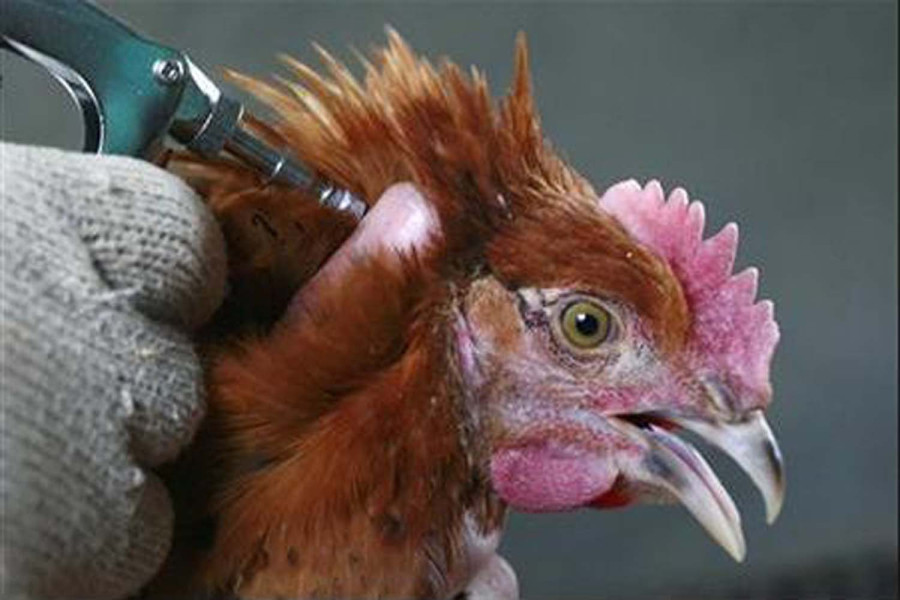National
Drug authority approves new Nepali vaccine against Newcastle disease found in birds
The vaccine manufacturer says it will produce sufficient doses for the domestic market and export as well.
Post Report
The Department of Drug Administration has approved a vaccine against Ranikhet (Newcastle) virus manufactured by a Nepali private company.
With the approval of the vaccine by the national drug regulatory body, Biovac Nepal, the vaccine manufacturer, said that it will launch the product in the market at the earliest.
“We will launch the vaccine in the market very soon,” said Dr Dibesh Karmacharya, chairman at the Center for Molecular Dynamics Nepal and Biovac Nepal. “We can manufacture sufficient doses of the vaccine for the domestic market and will export it too.”
Ranikhet or Newcastle disease is a highly contagious disease of birds caused by the paramyxovirus, which affects birds of all ages including domestic poultry. Birds affected by this disease are fowls, turkeys, geese, ducks, pheasants, partridges, and other wild and captive birds.
According to the World Organisation for Animal Health, the highly pathogenic disease is very similar to the avian influenza popularly known as bird flu. As the disease is very contagious, it spreads very fast into flocks of a particular area. The mortality in unvaccinated birds can reach 100 percent, and birds may die without any clinical signs of the disease, according to veterinary experts.
Clinical signs of the disease include coughing, gasping, sneezing, diarrhea, petechiae (tiny spots of bleeding under the skin), and a twisted neck, among others.
This virus normally does not affect humans, but people in direct contact with infected birds may develop a very short-term eye infection, which gets cured without any treatment.
The vaccine manufacturer said that the vaccine will be available both in liquid and tablet forms and can be administered orally by mixing in water or putting drops in the eye. The vaccine can be stored at minus 20 degrees Celsius for up to one year. The tablet form of the vaccine can be stored at room temperature for 30 days.
“Each dose of the vaccine costs less than a rupee,” said Karmacharya. “Poultry farmers will benefit from our product, which is of high quality and will be available at a very reasonable price.”
The Department of Livestock Services under the Ministry of Agriculture and Livestock Development also manufactures a vaccine for Ranikhet, but it has not been able to meet the demand. It is estimated that Nepal imports Ranikhet vaccine worth Rs 300-400 million every year.
“Under the national disease control programme, we administer the vaccine free of cost,” said Dr Samjhana Kumari Kafle, director general of the department. “We sell the vaccine to poultry farmers at a nominal price.”
Another private company Hester Biosciences Nepal Pvt Ltd also produces several types of animal and poultry vaccines including a vaccine for Ranikhet and exports them to foreign countries.




 9.83°C Kathmandu
9.83°C Kathmandu













